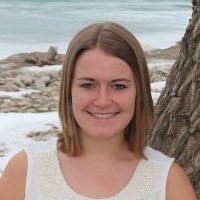Celebration of Scholars
History and Social Action in Guatemala
 Name:
Paige Myers
Name:
Paige Myers
Major: History and Sociology
Hometown: Brooklyn Park, MN
Faculty Sponsor: Stephanie Mitchell
Other Sponsors:
Type of research: Independent research
Abstract
History and Social Action in Guatemala
During January of this year, I
spent four weeks living and working with a woman, who took part in creating the
group known as the Dejando Huellas.
This group consists of seven women of various ages, who have worked for the
past thirteen years to improve the situation and condition of women in Petén,
Guatemala. My research has revolved around understanding how grassroots
organizations like this prosper and make change, especially among a climate
that is extremely hostile to change. By living with the coordinator of this
group, I had the unique opportunity to understand how these women use and
encourage organization as the primary mechanism to create change. This group is
unique in many ways, especially so in Guatemala, because it consists of only
women, who work with other women in some of the most remote parts of Guatemala. The Dejando
Huellas spend time outside of all their other duties
to their families, their jobs and their community to do the things this group
requires to function. These things include: finding funding, organizing
programs, gathering supplies, and navigating all the social obstacles that come
with inspiring change in a country that dislikes change. In doing
this research, I have come to understand the complexity that comes with
creating and maintaining a functioning and productive grassroots organization
trying to right the wrongs of the past.
Submit date: March 15, 2015, 3:19 p.m.
